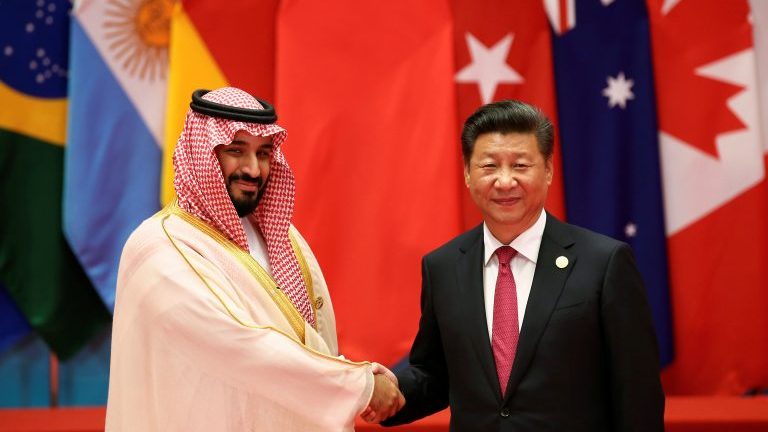The United Arab Emirates (UAE) is sharpening its focus on China as a key partner for economic expansion, reinforcing its position as a global trade and investment hub. With deepening economic ties, increasing trade volumes, and strategic investments, the UAE is set to capitalize on China’s rapid economic growth and technological advancements. This collaboration is expected to drive business growth across multiple sectors, from energy and logistics to finance and technology.
China’s Growing Economic Influence in the UAE
China has emerged as one of the UAE’s largest trading partners, with bilateral trade exceeding $70 billion in 2024. The UAE plays a critical role as a gateway for Chinese businesses entering the Middle East, Africa, and beyond. The increasing Chinese investments in UAE-based infrastructure, real estate, and free zones reflect the confidence in the country’s business-friendly policies and strategic location.
Key Areas of UAE-China Business Cooperation
1. Trade and Investment Expansion
China and the UAE have long-standing trade relations, with Chinese goods dominating UAE’s import market. In return, the UAE exports oil, aluminum, and petrochemicals to China. The UAE aims to diversify its economy by attracting more Chinese investments in non-oil sectors like manufacturing, logistics, and tourism.

- The Belt and Road Initiative (BRI) has played a pivotal role in strengthening UAE-China trade partnerships.
- Dubai International Financial Centre (DIFC) has attracted major Chinese financial institutions, facilitating cross-border investment.
- UAE free zones, such as Jebel Ali Free Zone (JAFZA) and Abu Dhabi’s Khalifa Industrial Zone (KIZAD), are home to hundreds of Chinese businesses.
2. Energy and Infrastructure Partnerships
As one of China’s top crude oil suppliers, the UAE remains a key player in China’s energy security strategy. At the same time, Chinese companies have invested in renewable energy projects in the UAE, including solar and wind power.
- China’s CNPC (China National Petroleum Corporation) has partnered with Abu Dhabi National Oil Company (ADNOC) for major energy projects.
- The UAE’s Masdar has collaborated with Chinese firms to develop clean energy solutions.
- China Harbour Engineering Company (CHEC) and other firms are involved in port and infrastructure development in the UAE.
3. Technology and AI Collaboration
China’s technological advancements in AI, 5G, and digital transformation have created new business opportunities for the UAE. The country is embracing China’s expertise in smart cities, e-commerce, and fintech.

- Huawei, a key player in the UAE’s 5G rollout, has established a strong presence in the region.
- UAE-China AI partnerships are driving innovation in healthcare, education, and smart governance.
- Chinese e-commerce giants like Alibaba and JD.com are expanding in the UAE’s booming digital economy.
4. Tourism and Cultural Exchange
The UAE has become a top destination for Chinese tourists, thanks to visa-free travel policies and a growing number of direct flights. The increasing influx of Chinese visitors has led to a surge in hospitality investments, including luxury hotels, restaurants, and entertainment venues.
- Dubai and Abu Dhabi have launched customized tourism experiences to cater to Chinese travelers.
- Major UAE retailers now accept China’s mobile payment platforms like Alipay and WeChat Pay.
- Educational and cultural exchange programs between UAE and China are strengthening people-to-people ties.
Future Outlook: Strengthening Bilateral Relations
With China’s continued economic rise and the UAE’s commitment to business diversification, both nations are set to deepen their collaboration in the coming years. The UAE is positioning itself as China’s key partner in the Middle East, leveraging its strategic location, business-friendly regulations, and advanced infrastructure.
As economic ties expand, the UAE-China partnership will play a critical role in shaping the future of global trade, innovation, and sustainable development.
Do follow Uae stories for more Updates












